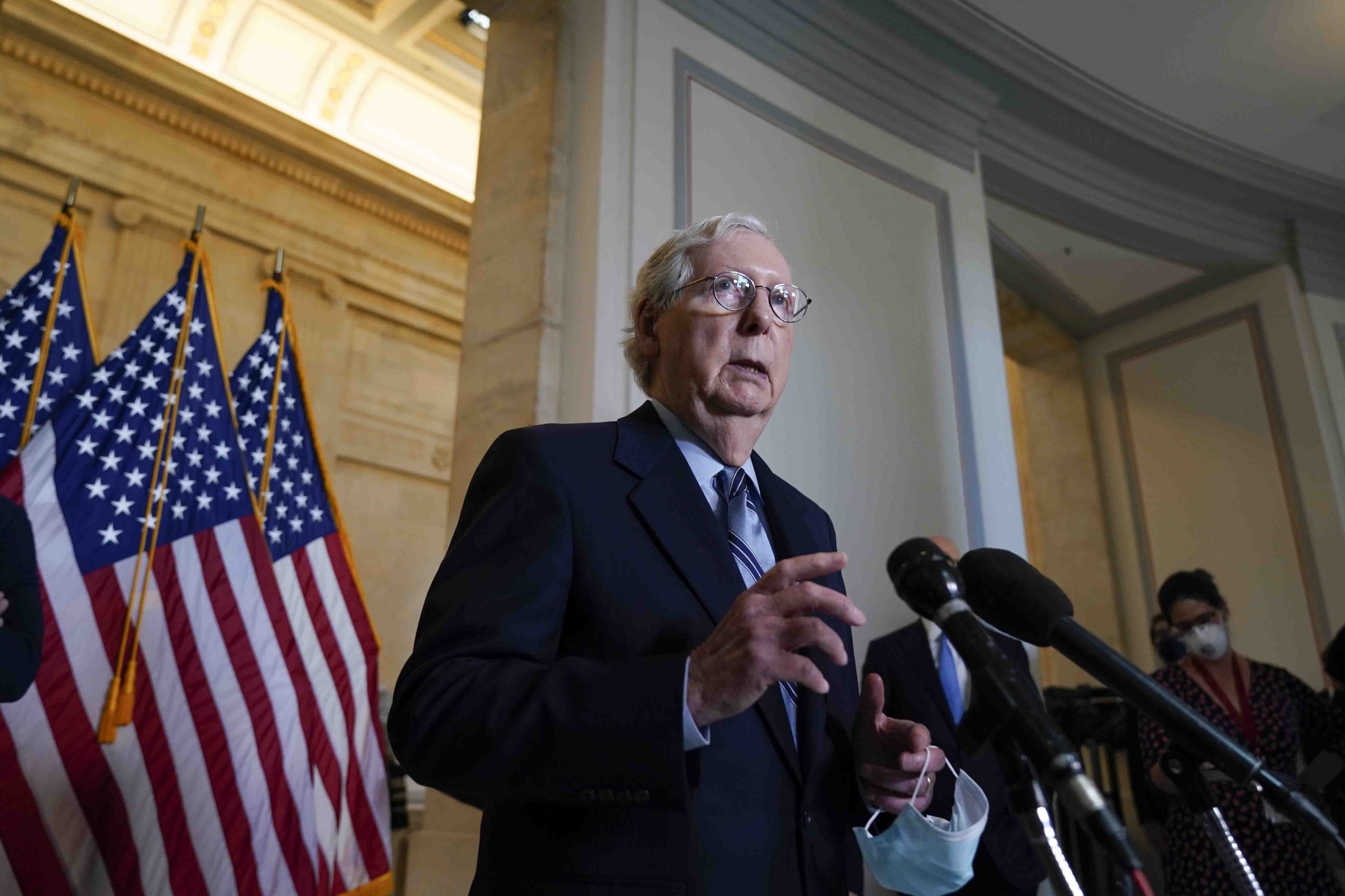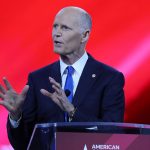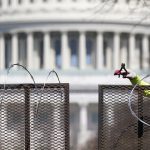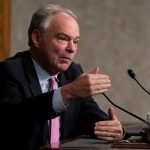Senate Republicans unveiled their infrastructure counteroffer Thursday — a $568 billion package that made it more apparent than ever that a deal between the parties may be out of reach.
Democrats set the plan aflame even before Republicans released the details, denouncing its top-line figure as anemic given the nation’s needs. The GOP proposal also relies on a set of mostly unrealistic pay-fors, and would impose user fees instead of the Democrats’ approach of raising corporate taxes.
"It fails to meet the moment we’re in," said Sen. Bob Casey (D-Pa.), who like some other Democratic senators said it was "not a proposal I could support."
The new Republican proposal is about a quarter of the size of President Joe Biden’s more than $2 trillion proposal — and also smaller than former President Donald Trump’s $1.5 trillion infrastructure plan from three years ago. It’s also significantly narrower than either of those other plans, focused primarily on transportation infrastructure along with items like broadband and water projects.
The GOP plan is still vague on one of the most important questions: how to pay for the spending. It leans on unspecified user fees; "financing tools" and enticing the private sector to open its pocketbook; and unused money from prior Covid relief bills.
Sen. Shelley Moore Capito (R-W.Va.), the lead Senate Republican working on the counteroffer, emphasized Thursday that it’s important that the package "not be so large as to fail to launch, which means sticking to actual infrastructure. That’s why our framework works. It serves as a realistic, thoughtful approach that addresses the core areas of infrastructure that we all agree upon."
But some Democrats still don’t seem convinced. Sen. Ron Wyden (D-Ore.) called the proposal "far too small" and said it "paves over the status quo."
"The contrast could not be more stark," Wyden said.
Not all Democrats feel that way, though. Sen. Chris Coons (D-Del.), a close Biden ally, said he was "encouraged" by the proposal. "It strikes me as a serious attempt at providing a counteroffer that meets the general framework that I was hoping for."
The proposal’s vagueness suggests that Republicans have not been able to settle on specific funding options. Sen. Mitt Romney (R-Utah), who has emerged as a key negotiator, hinted earlier this week that an electric vehicles fee, public-private partnerships, ticket taxes for airport improvements and new highway tolls could be part of the mix, but each of these has significant problems.
A fee on electric vehicles is feasible in the abstract, but with battery-powered cars and trucks accounting for less than 1 percent of vehicles on the road, the money collected would be meager. The trucking industry would fight against new tolls on existing highways, and additional taxes on the price of an airplane ticket to pay for airport improvements would draw the ire of the airline industry. Public-private partnerships, a favorite tactic of some in President Donald Trump’s circle, might induce the private sector to spend on infrastructure but would not themselves count as spendable dollars.
The GOP framework says an infrastructure bill should be fully paid for and "shore up any infrastructure-related trust fund that is facing a revenue shortfall," including by ensuring that electric vehicles are contributing to highway revenue. However, an electric vechicle fee alone would not be enough to make up for shortfalls in the trust fund that fuels highway and transit spending.
"Congress and the Biden administration must reach a bipartisan agreement that will improve the infrastructure in all states and communities, while achieving important national goals," the document says. "This framework is meant to serve as a guide as we continue to develop bipartisan bills that will move by regular order."
The Republican plan is heavy on highway funding, allocating $299 billion for roads and bridges, or more than half of the overall figure. On the transportation side, it also includes $61 billion for transit, $20 billion for rail, $44 billion for airports, $7 billion for water ports and $13 billion for safety agencies including the DOT bodies that oversee highways, trucking and pipelines. Non-transportation line items include $65 billion for broadband, $35 billion for drinking water and wastewater infrastructure and $14 billion for water storage.
It also specifies that funds should flow through existing formula and discretionary programs, which means its authors won’t want to create new bureaucracies to handle whatever spending the plan envisions.
Biden’s plan, by contrast, is a more than $2 trillion blueprint that an increase in the corporate tax rate would pay for. It de-emphasizes funding for highways, instead redirecting federal dollars to a massive electric vehicle infrastructure effort, and includes funding for a broad range of items like health care that Republicans have argued fall outside the bounds of traditional infrastructure.
An additional wrinkle is it’s unclear how the GOP proposal will mesh with the surface transportation reauthorization, which both parties are working on in the House and the Senate. The current authorization must be extended or replaced by the end of September.
Capito said the Senate’s bipartisan surface bill from last year, which the Senate Environment and Public Works Committee approved uninaimously, should form the basis for their new proposal.
"I would suggest that that template that we did last Congress, that 21 out of 21 votes on [EPW], including all of us, and Bernie Sanders and every Democrat, that would be the basis for which we build an infrastructure plan,’ Capito said, later saying that the numbers in the plan are "regular appropriations plus."





















